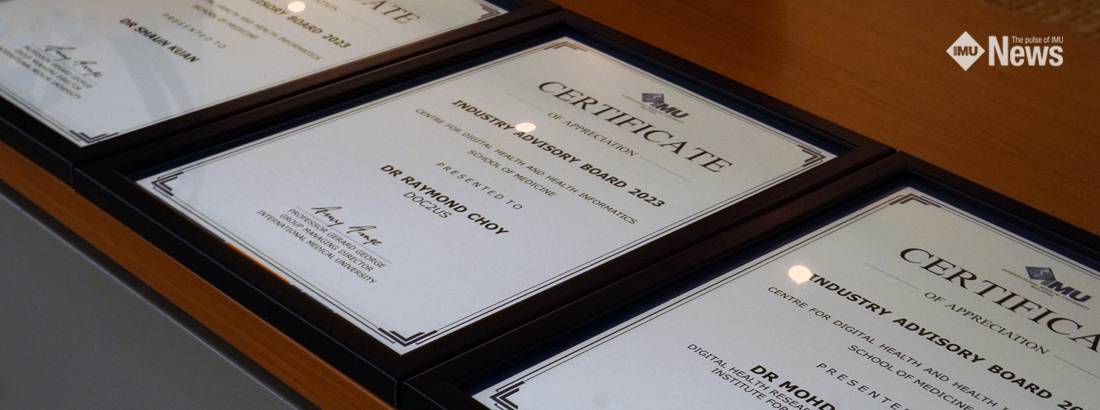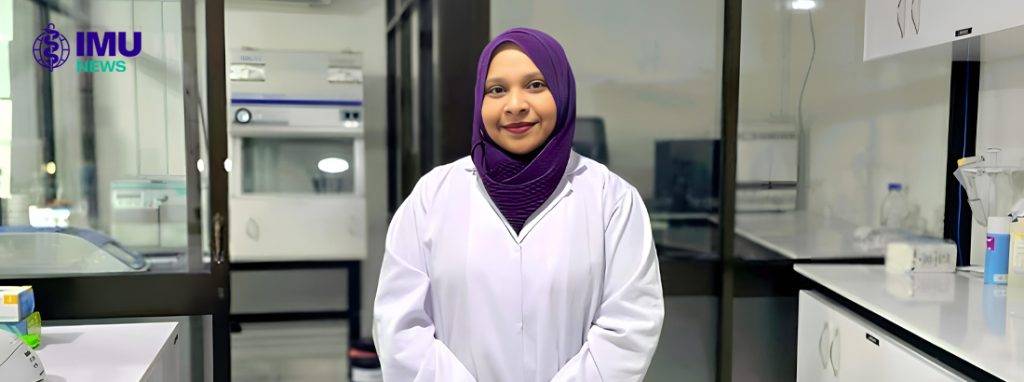Postgraduate study not only gives graduate students new opportunities to deepen their knowledge in their chosen fields, but it also ensures that doors remain open for new discoveries and drives innovation for society. As Dean of the School of Postgraduate Studies, Prof Dr Tan Eng Lai talks about delivering a postgraduate experience that brings value to community and improves human life.
In an age where information is available with a swipe, click and tap, an extended pursuit of knowledge may seem like an extravagant endeavour. Today’s world has made us somewhat addicted to bite-sized data and shortcut summaries which, while not negative, has tempted us away from deep diving in favour of instant gratification.
In such a fast-paced world, what role can postgraduate study play? “Postgraduate study is a deliberate, mindful endeavour,” says Prof Tan, Dean of the IMU School of Postgraduate Studies (SOPG). It seems to sit in perfect juxtaposition to the hectic technology-driven world that we live in – yet it is this purposeful pursuit of knowledge that has always been at the heart of groundbreaking discoveries and given us the very cutting-edge technology that allows humankind its speedy progress.
“There is of course the undeniable excitement of discovering new things,” says Prof Tan, adding that being a scientist has enhanced his academic life and allowed him to have livelier engagement with his students.
Healthier Communities
At the IMU, research is focused on diverse fields of healthcare including health management, health informatics and analytics as well as digital health. The areas of study – from the discovery of new drugs, predicting health trends and incorporating informatics and analytics as well as digital tools into healthcare management – have incredible potentials to save and change lives and enable humankind to live healthier and longer.
The SOPG’s alumni have spearheaded projects that have entailed revolutionary work, for example, on potential treatments for common brain diseases like Alzheimer’s, Parkinson’s, and dementia and the development of drug delivery methods using nanoemulsions to improve therapeutic treatment of breast cancer. These are research that have won prestigious awards such as from the Federation of the Asian and Oceanian Physiological Societies and the TienTe Lee Biomedical Foundation-YSP Southeast Asia Holding Bhd Excellent Scientific Paper Award.
“We have great potential here to pioneer solutions to real challenges,” says Prof Tan.
Opening Doors
The SOPG attracts a diverse student body with different fields of interest, and the postgraduate programmes have been designed to open doors even to students from non-related fields. Some of the programmes that we offer provide three levels of entrance, a postgraduate certificate, a postgraduate diploma and a Master’s programme. This allows students to seamlessly assimilate and progress into their chosen field.
There are also elective modules that help students pick up the right skills, for example in the health and analytics field, a computer programming and a statistics elective is available to cater to students who do not have previous computing and statistical backgrounds respectively. Coupled with the interdisciplinary nature, programmes at the school ensure that graduates are equipped with holistic skills that make them work-ready, from managing a healthcare set up with a data-driven mindset to heading multi-dimensional experimental projects in a laboratory.
Exploring Education
Besides research in the medical and health sciences, the SOPG has also carved out a niche in the field of health professions education (HPE). Its solid research work in HPE has gained much recognition and captured a wide market with a postgraduate certificate, postgraduate diploma and master’s degree and PhD in HPE.
“The work we do in health professions education is important because this is where new knowledge and evidence of best practices and innovative methods can be generated. This then helps to elevate the way we teach our future healthcare professionals and ultimately advances the healthcare service for the benefit of the community,” says Prof Tan. The field of research covers a wide range of topics such as teaching and learning methods, curriculum design and delivery, assessment strategies, faculty development and educational outcomes.
Translating Research into Solutions
While the pursuit of knowledge for the sake of it is, in itself, an empowering endeavour, the SOPG is not a place where science is kept in textbooks, journals and great minds. At the heart of the SOPG is translational research – the application, or translation, of scientific discovery into practical solutions that benefit communities and people. It is a place where science is alive.
Faculty and students work together to continue to push boundaries that ensure the advancement of society. For example, in the case of medical research, this entails scientific investigation into an existing problem and finding usable solutions. In the case of HPE research, it is about the application of theories in classroom settings.
This is made possible by a faculty that has years of research and clinical experience who themselves are active researchers and who are able to effectively supervise postgraduate students in a wide variety of research projects. With a strong network, faculty members have also had a good track record in getting government and industry grants – an essential component to getting research off the ground.
Future-focussed Long-term Thinking
With an atmosphere of intellectual reflection, the School of Postgraduate Studies at the IMU is a place teeming with ideas, driven by scientific curiosity of its students and faculty. Students who come from different geographical backgrounds form a rich and synergistic community – with camaraderie fostered by platforms that encourage postgraduate students – in the process of uncovering new knowledge for themselves – to become reacquainted to slowing down and thinking in the long term.
“My vision for the SOPG is to continue to roll out quality postgraduate programmes that cater to the needs of the society,” says Prof Tan. “We take on research and studies to tackle real world challenges and offer feasible solutions,” he adds.
With the integration of artificial intelligence, augmented reality and new information technologies, as well as the opportunities that arise when working in a multidisciplinary institution, the students at the SOPG have a clear advantage to be the non-traditional heroes of the community. They may not wear capes, but they do bring about scientific discoveries that save lives… and the day.
About Prof Tan Eng Lai
Prof Tan was trained as a biotechnologist in the late 90s in Australia. It was a time when the field was a growing and expanding scientific area and he developed an interest in human and animal cell culture. This later evolved into a focus on cancer cell biology, where he researched the relationship between nosopharyngeal carcinoma – a nose cancer that is pervasive in Southeast Asia including Malaysia – and the Epstein Barr Virus. He later brought his skill in culturing human stem cells to the IMU, where he held a workshop on culturing human embryonic stem cells in 2009. Today his work revolves around periodontal stem cells.
Prof Tan has served in many roles at the university, including a one-year stint as the Associate Dean of Admissions which gave him the opportunity to work on the non-academic side of things. As he worked to admit students with the right qualifications to the respective academic programmes, he realised the importance of ensuring an academic structure that would empower students to become the best versions of themselves. This mindset underlies the growth of the SOPG: “With a development mindset to make our students better no matter their starting point, it challenges us to continuously do better, and to innovate our curriculum and the way we deliver it,” says Prof Tan.






No approved comments.